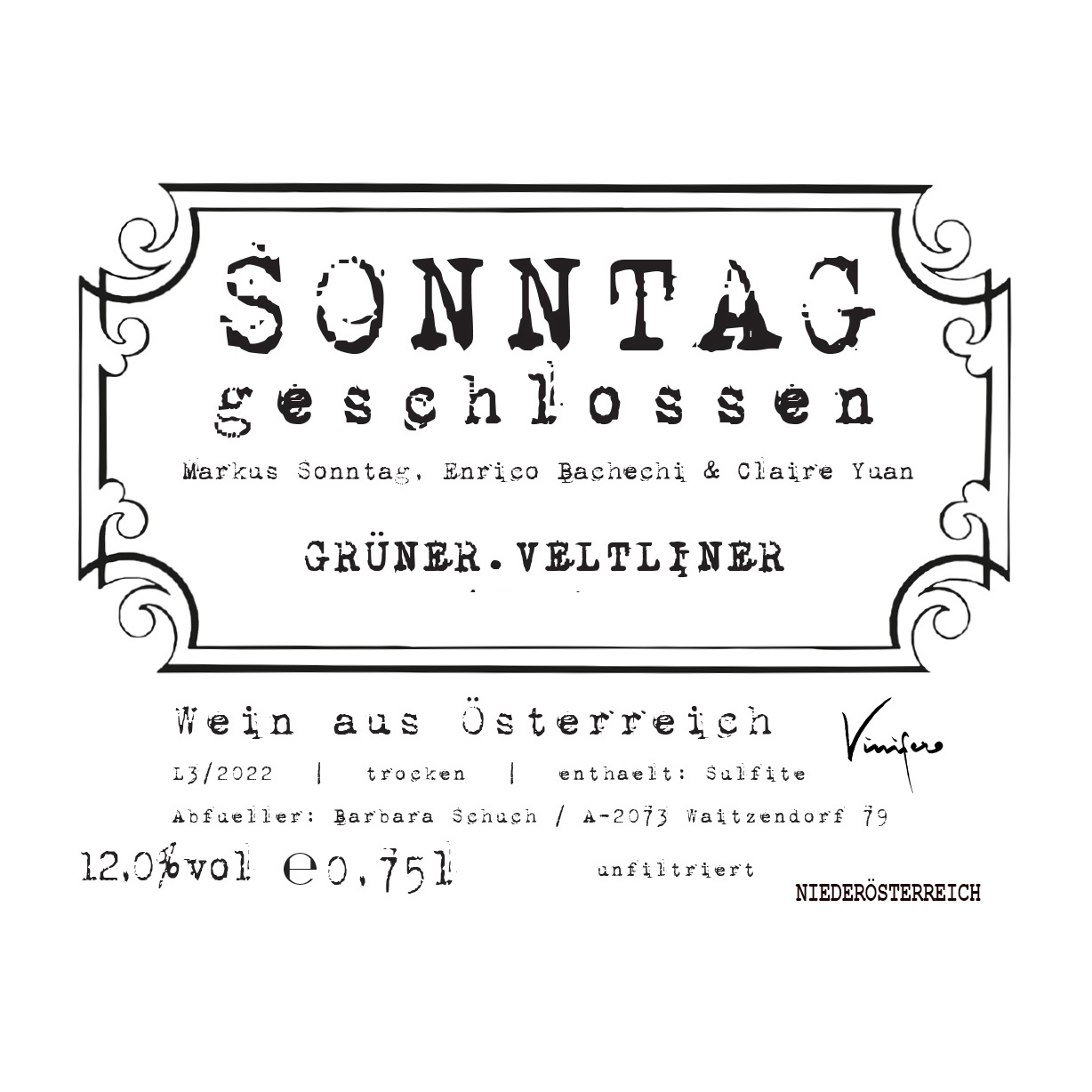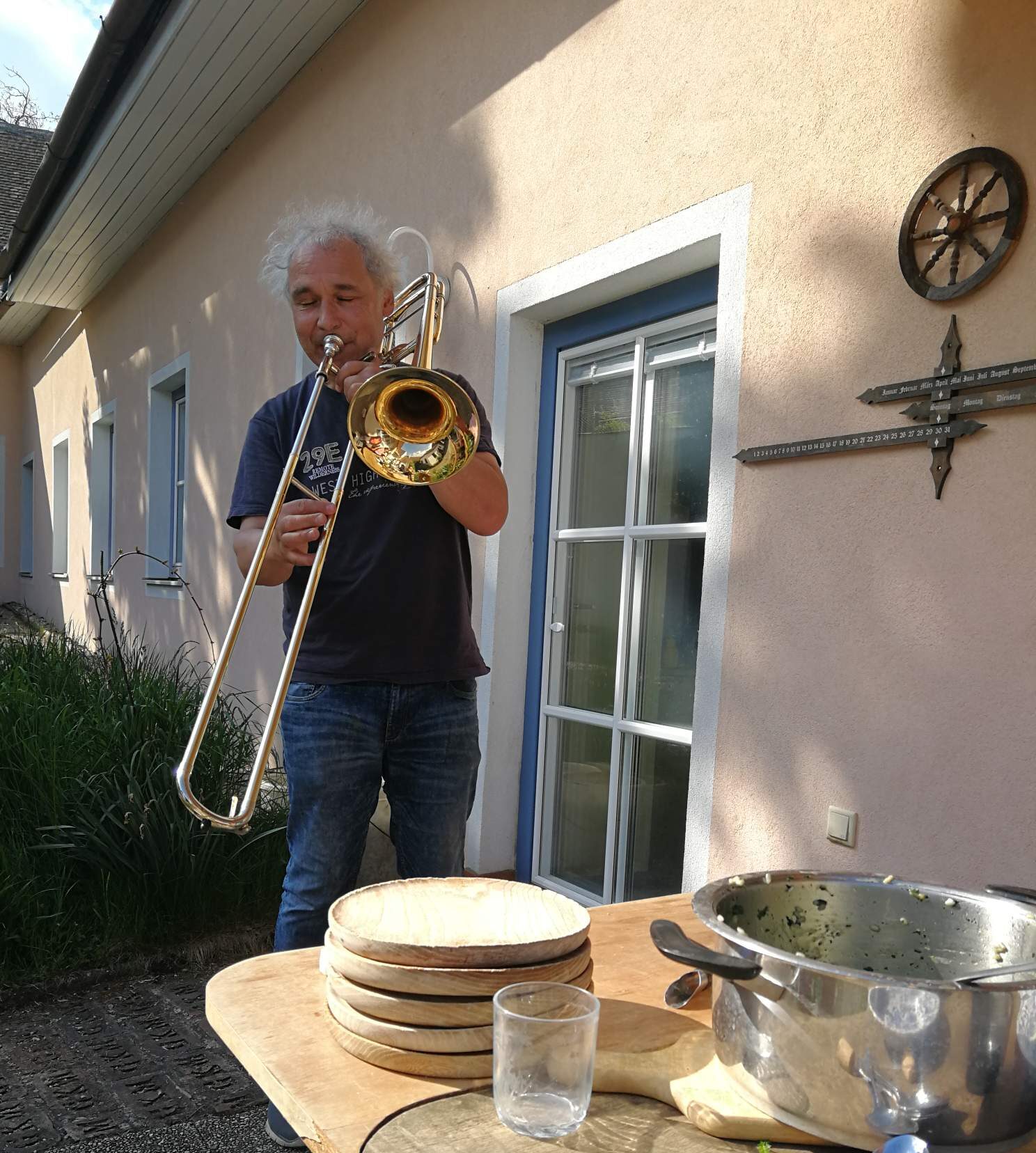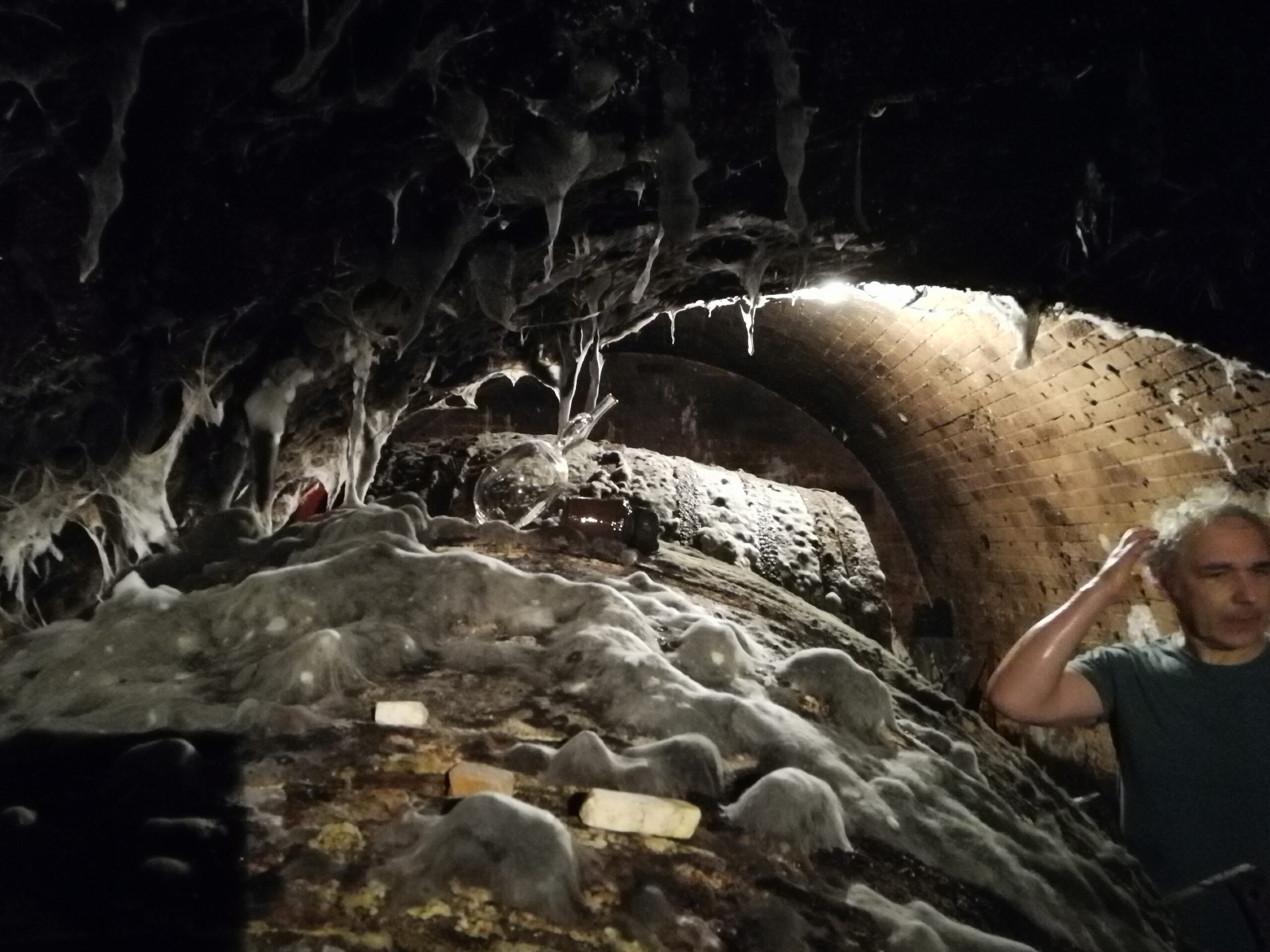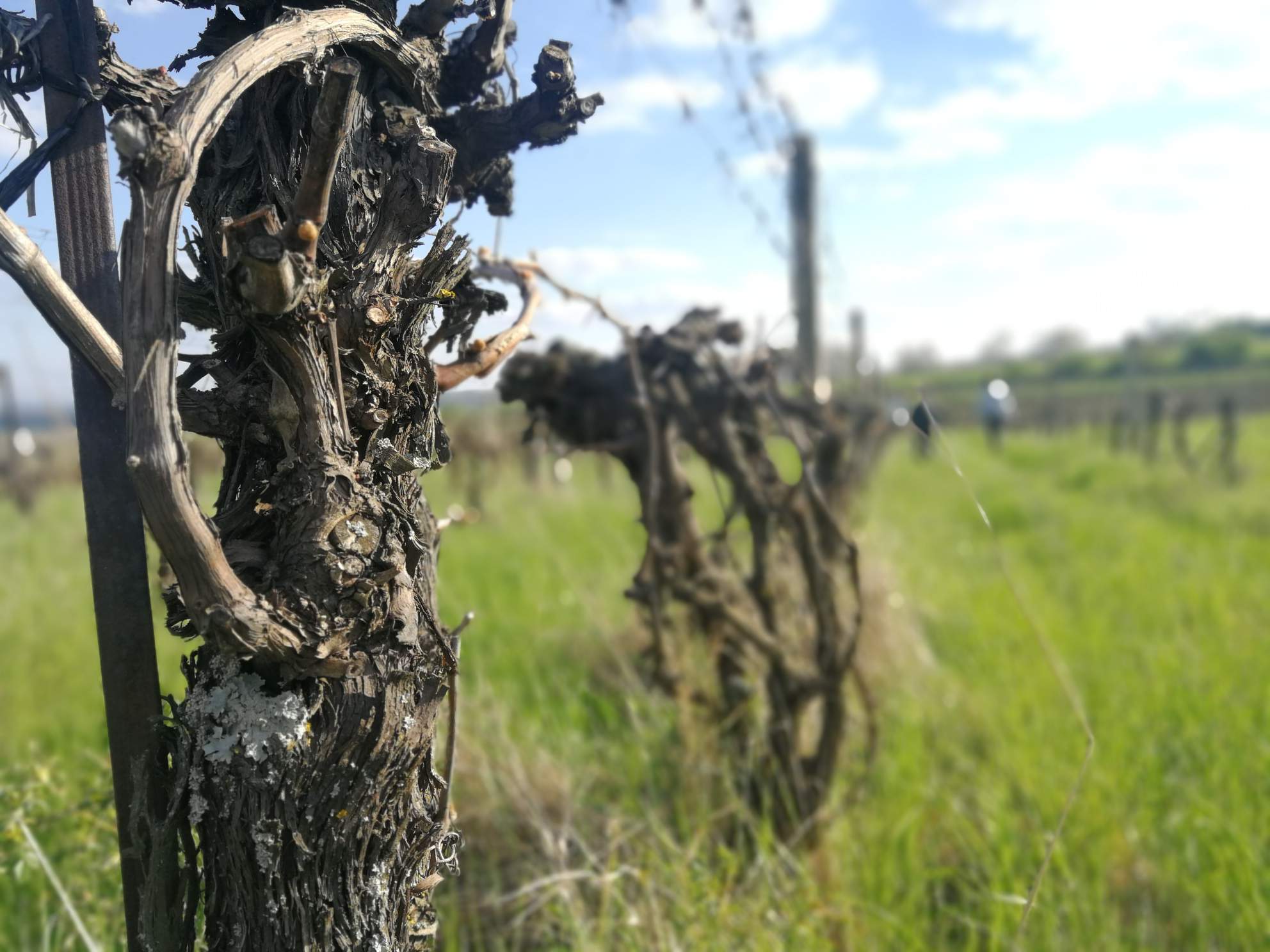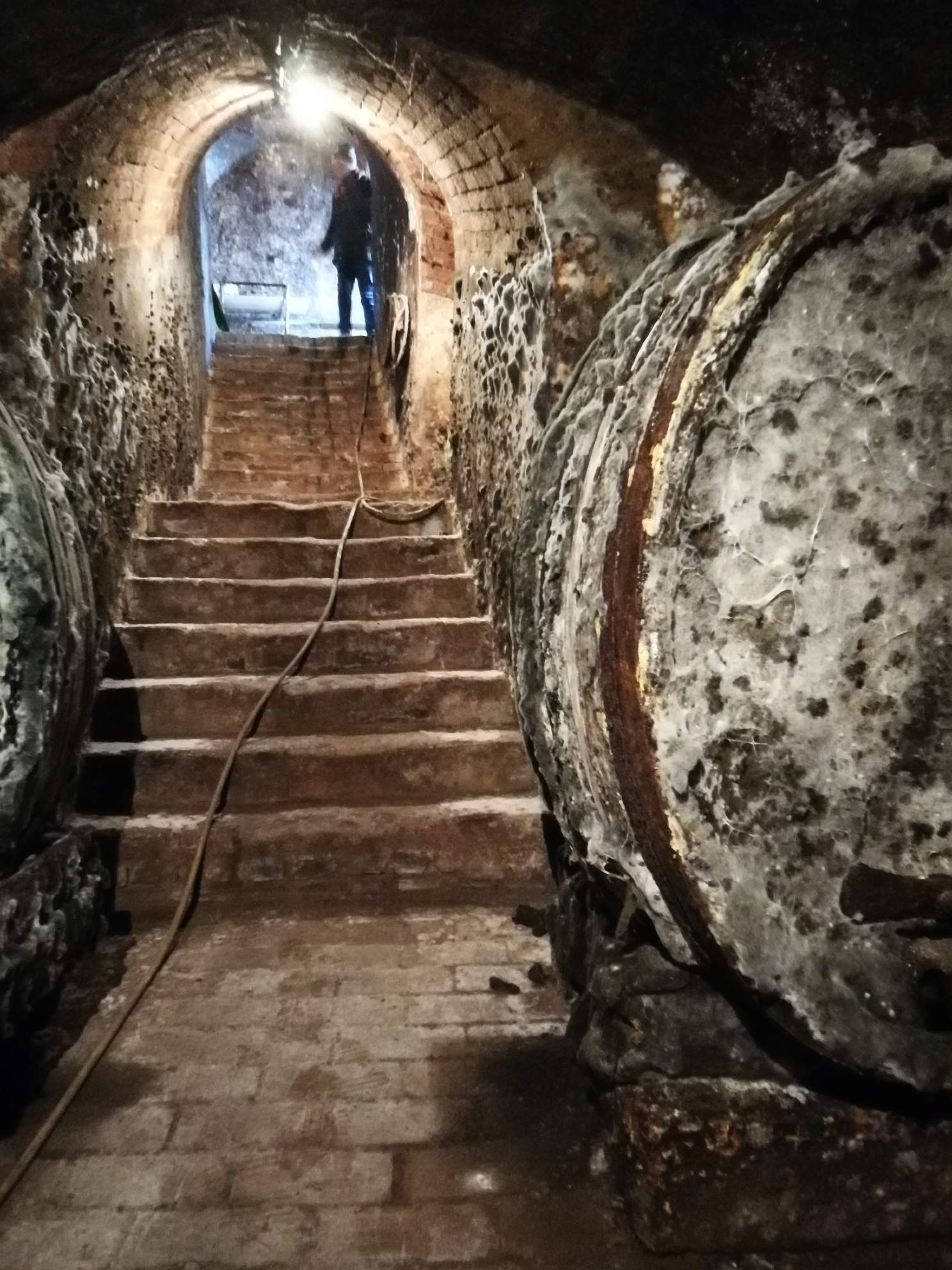7,492 days in barrel and it’s still not simply a matter of time.
Making sense of the wines of Markus Sonntag, giving them their proper context, is no easy task.
Markus is not really a winemaker, at least in any traditional way. He has, as it turns out, a day job in Vienna as a computer scientist – a fascinating juxtaposition to the fact that he’s a passionate musician, a trombonist, and something of an avant-garde farmer.
In fact, Markus has tended his family’s two hectares of vines for over a quarter of a century, treating the property more like a garden than a vineyard. When he took over in 1998 he immediately transitioned to organic farming. In the years since he has begun to explore permaculture, returning the various parcels back to nature as much as possible. The vines are minimally pruned and the grasses are allowed to grow tall in the vineyards. Markus has personally planted hundreds of fruit trees and large swaths of grains to break up the monoculture surrounding the vineyards. Most of the fruit that is grown is left for the animals that graze around the property; the trees themselves provide ample shade for the vines that grow below and between them.
The farming here is the fascination. It’s the business of bottling wine and trying to sell it that is less interesting to him. “Sonntag Geschlossen,” the name of the winery-project, translates to “closed on Sundays,” an insider’s joke as to how business is done here.
Business is rarely done here; most of the time the cellar is closed. That’s the truth.
And when there is business to be done, well, we don’t really know what, specifically, we will be offered.
The real powerbroker here, the one controlling everything in this labyrinthine cellar in Austria’s Weinviertel, not terribly far from the Czech border (door pictured below), is time. Nothing more and nothing less.
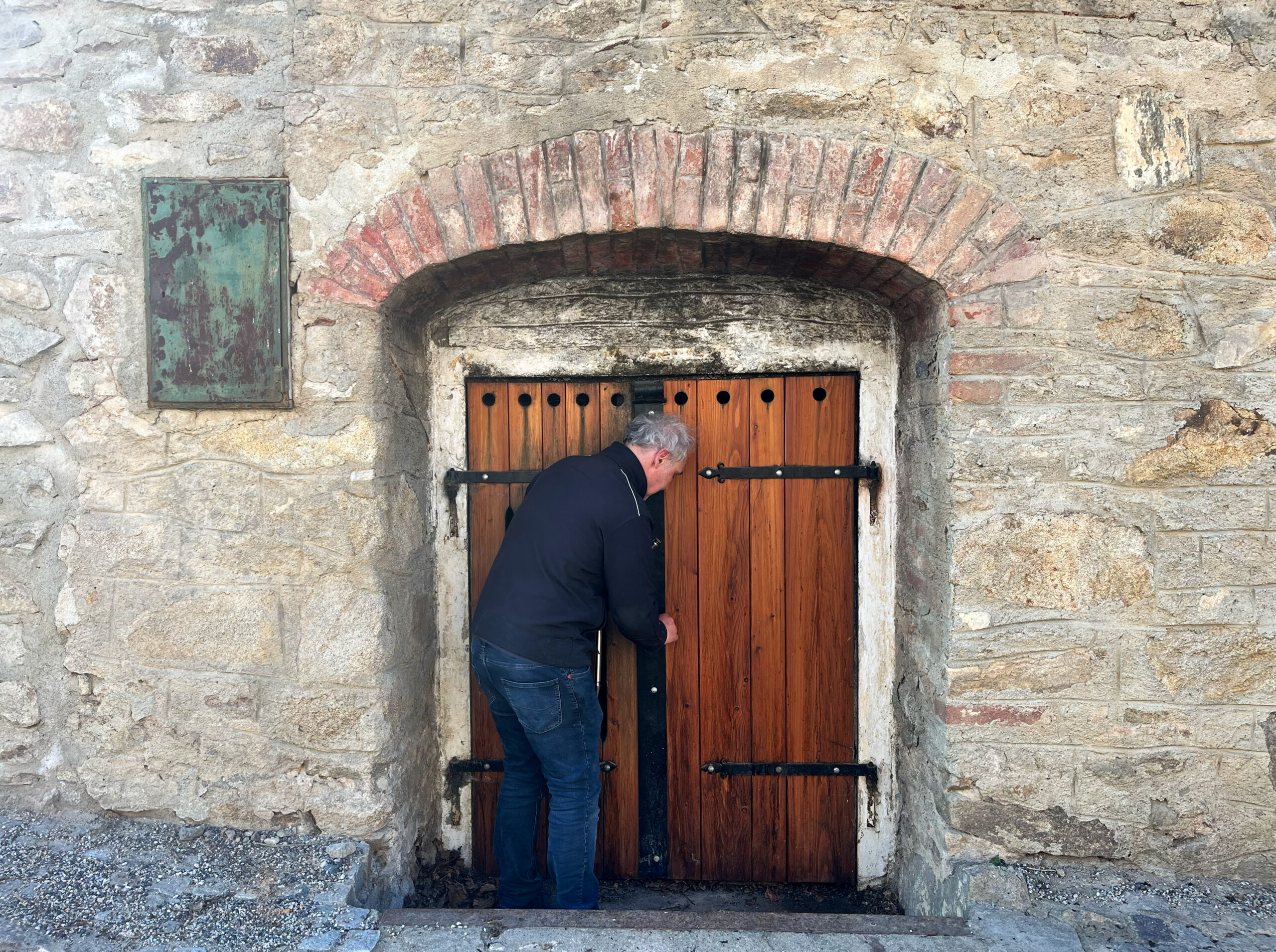
When Sonntag Geschlossen is Geöffnet (open), when the doors are unlocked, a long staircase takes you deep into another world. Down here, ancient barrels, embalmed in dense layers of mushrooms, protect the literally decades worth of wine that still slumber within. The barrels, from 800-liter, to 2,000-liter and much larger, feel like stoic sentries, dressed in plush, white-gray-brown-and-black fungal mantels, waiting for nothing and everything. This is not an Indiana Jones set, but it feels like it could be.
As we said, Markus is a farmer, the vines and the grapes are his obsession; the wine was – is – just the echo of these beautiful moments. And so they gather, these wines, and age, in the cellar.
Some casks are fastidiously protected, like the single 800-liter cask of 2003 Grüner Veltliner (one of Markus’ first vintages), aged on the skins for 28 days and then aged in the barrel for 7,492 days. (That’s over 20 years.)
Other wines are moved about with every vintage, a complex game of vinous Tetris, vintages blended and then reblended, so that things fit snugly into place, so that barrels are full and the wines are happy. The “Schwimmbad,” which if Markus wasn’t so chill, would be called something more luxurious like a “cuvée perpétuelle” (and sell at 4x the price), is a collection of nearly all of the harvest since 2002. So far as I know it has been bottled twice, most recently in 2024.
In the five plus years we’ve been working with Markus, we’ve gotten only a handful of releases, younger vintages, older vintages, multiple barrels from the same vintage released at different times.
For fun, compare and contrast the 2015 Grüner Veltliner bottled from a 3,600-liter barrel after only 2,576 days to the little brother, a petite, 1,850-liter barrel that was bottled after 3,140 days… making it the older brother? (I have actually done this, for the record, though you guessed that didn’t you?)
The point is that the aging here, the time, is both an absolutely essential component of the wines and what they are, and it is also managed with a very considered, near-absolute abandon. The whole process reminds me a bit of a great phrase, used for a late-1990s exhibit of abstract art at the Guggenheim in New York: “Total Risk, Freedom, Discipline.”
So there we are.
The soul of these wines is also of another time. Frankly, to me, these wines speak of an older Austria, a more rustic and subtle Austrian wine: The current release of the Schwimmbad clocks in at 11% alcohol. It is among the most ethereal Grüners I have ever had, lithe, dainty, sparrow-like. Most of the wines have long since shed their bright, punchy layers of warm fruit, all the oohh-and-ahhh technicolor vibes that have given much of the current Austrian wine scene its fantastical market success. Markus’ wines feel like mineral water filtered through earth, with fresh garden herbs and plenty of waxy citrus.
They are haunting beauties, literally, from another time.
If they say it’s a farmer’s dream to have a full cellar; Markus is in heaven.
Check the current inventory for the full story on the most recent releases.
